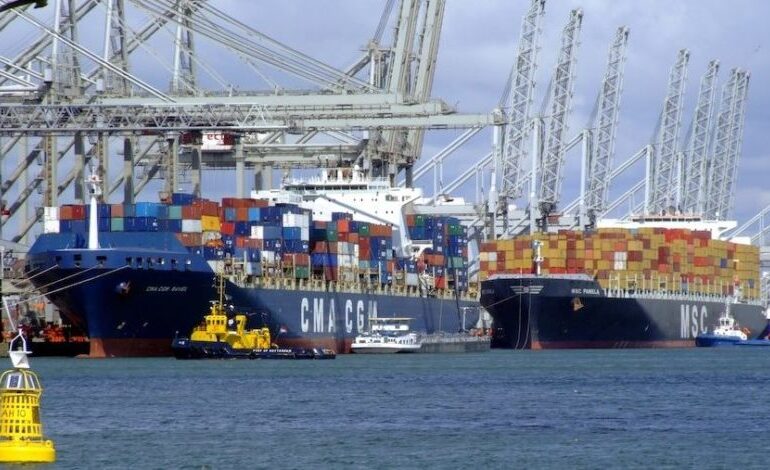Shipping lines have recently been reshaping their operations to include more logistics integration, which could indicate a change in business strategy. The latest paper of PortEconomics member Theo Notteboom and Hubert Paridaens (Antwerp Maritime Academy) analyses recent developments in the strategic paths of Maersk Line, CMA CGM and MSC in the context of logistics integration and presents empirical findings on their strategic positions and associated drivers. By applying a conceptual framework highlighting and exploring various key strategic, tactical, and operational issues, the study provides an in-depth overview of logistics integration in liner shipping.
First, the authors perform a literature review to figure out how the literature on logistics integration has changed over time in response to economic cycles and corporate interests. Second, we present a conceptual research framework exploring the ways in which logistics integration takes place among Maersk Line, CMA CGM and MSC. Third, they empirically demonstrate that different facets, building blocks and attributes shape the strategic path of these three shipping lines. A summary reading grid facilitates the concluding analysis of logistics integration developments at work within the three container carriers. The multi-case study provides empirical findings on intra- and inter-carrier differences in the temporal paths of logistics integration, the spatial coverage when rolling out integration initiatives and the implementation methods.
The portstudy has been published in the Research in Transportation Business & Management journal (volume 45, part C, December 2022), and you can access it via the journal’s webpage.












